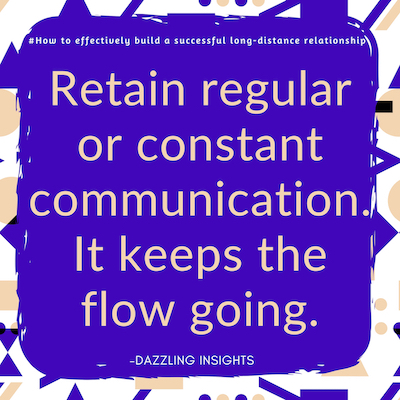Home (or family) is the root of every individual in a society. Each person is a product of a family. Building a functional home is not about the material things like mansions or lavishly furnished house with the latest appliances. Although all these may be desirable, they are not essential to true happiness.
To be clear, having a functional family does not mean a perfect family, and neither is it intended to be flawless. The goal is not perfection. A functional family is a place where everyone is aware of their strengths and weaknesses, where love and support are provided for the growth of individuals within the family setting.
Family is the first school where a child believes what they see and hear. A family is like a garden, where what grows in it is a result of the quality of nourishment.
A functional family should be a place where the values that the children learn are so enshrined that they would not be confused by what they hear and see outside.
Here are some ways you can build a functional family.
Subscribe to Dazzling Insights Blog
You will be notified as soon as a new article is published
1. Identify each person’s responsibility and be ready to assist
Everyone in a family is supposed to have a primary role. It’s the primary duty of parents to work together to support the family for their basic needs. Identifying this role should be the responsibility of both parents. Discussing this early in the relationship will help each other to prepare psychologically and physically.
The wellbeing of a family should be your highest priority as a parent. And it would help if you are intentional in making things work. However, some have mixed feelings about some responsibilities in the home; I believe there should not be fixed expectations.
The father is seen as the sole provider of the family while the mother nurtures. This is absolutely not compulsory as roles can swap either through circumstances or with intentionality. In this case, the children can see their father as a nurturer, someone to confide in, help with home works, while mothers can also work to make ends meet. However, this is dependent on what both agree.
"It is quite important to address challenges from each person’s perspective to come to a balanced compromise, which will yield a progressive outcome."

2. Make it a haven of safety
A functional family should be a place of safety and refuge - a place where you can first run to when faced with storms and challenges. It should be a place that provides a shoulder for one to lean on - where you don’t feel criticized, judged, condemned or stigmatized. Everyone should be able to express their thoughts and share their feelings. When the society turns its back away from you, a family should be able to open its arm to receive you. Learn more from a sterling article on ‘Family is everything’.
Share this Dazzling Post
3. Understand the behaviour and personality of individuals in the family
Understanding the personality of individuals in the family helps in the way we respond to specific issues. Have you ever wondered why a child in a family is extrovert while another child in the same family is an introvert? Research from behavioural genetics suggests that differences in personality have substantial genetics foundation. As parents, however, we need to keep in mind that children are not like clays that can be moulded into whatever it is that we desire. We can guide and provide experiences, but we likely can’t change their fundamental personalities.
More generally, personality is shaped by the fit between the child’s temperamental qualities and characteristics of the environment. Therefore, in a functional family, parents should be aware of their impacts on the children and how they respond to the behavioural pattern of each of them without comparing.

"To be clear, having a functional family does not mean a perfect family, and neither is it intended to be flawless. The goal is not perfection."
4. Be fair in handling conflicts
The family is made up of different personalities, therefore, they also respond to issues from different points of views. It is quite important to address challenges from each person’s perspective to come to a balanced compromise, which will yield a progressive outcome. A functional family disagrees to agree.

I hope you find these tips useful in building a functional home. Feel free to write in on other suggestions on building a functional home in the comments section. As Ijeoma always say - let’s keep dazzling together as we build functional homes.

Bunmi Alabi is a seasoned Relationship Expert and Coach. She has positively impacted the lives of hundreds of youths and singles in Nigeria, where she resides. Bunmi is also a certified Mental Health Counsellor.
She is the founder of Single and Special®, a platform for singles
between ages 20 and 40. With this platform, she helps them build healthy relationships and challenges them to invest in personal development. She can be reached through her consulting platform – Bunmi Alabi®.











Comments 2
Having a functional family doesn’t mean having a perfect family. ??????
Absolutely. Bunmi puts it in such a clear way.
Thanks for the comment.